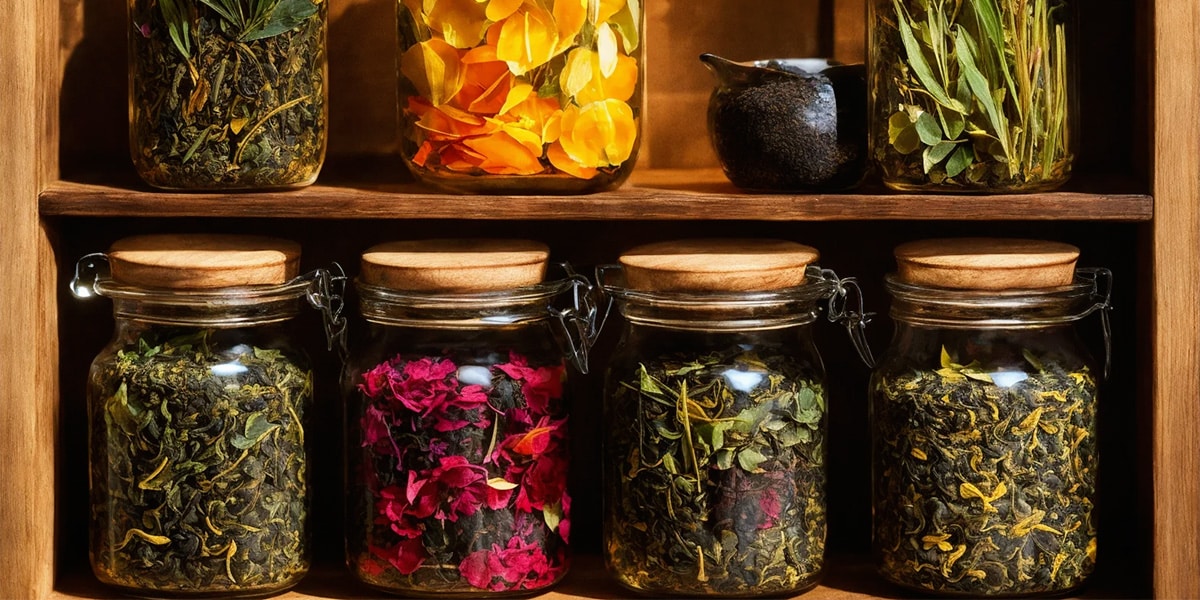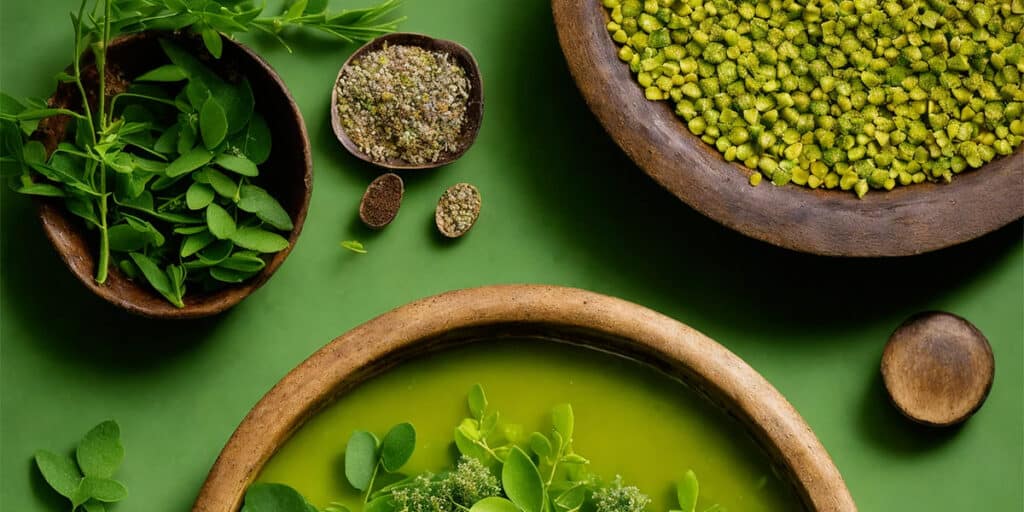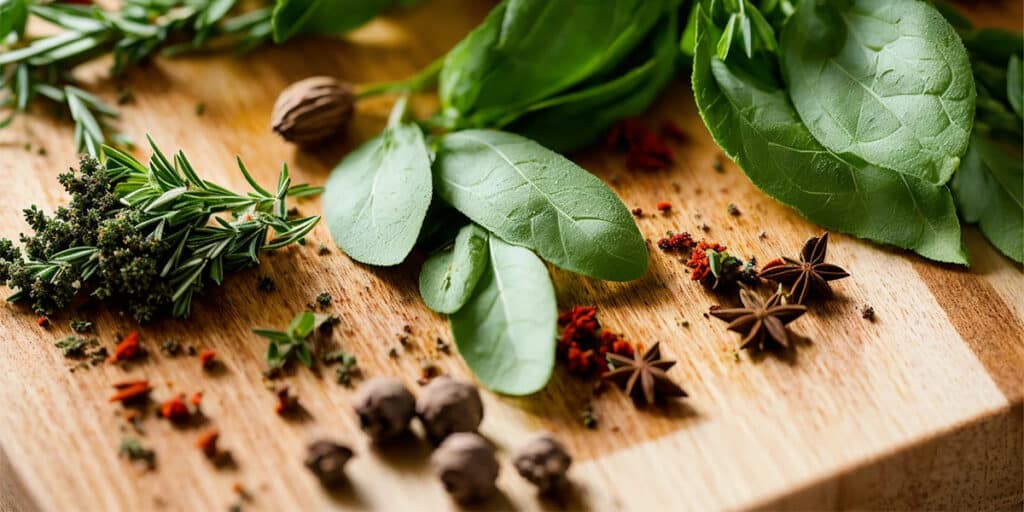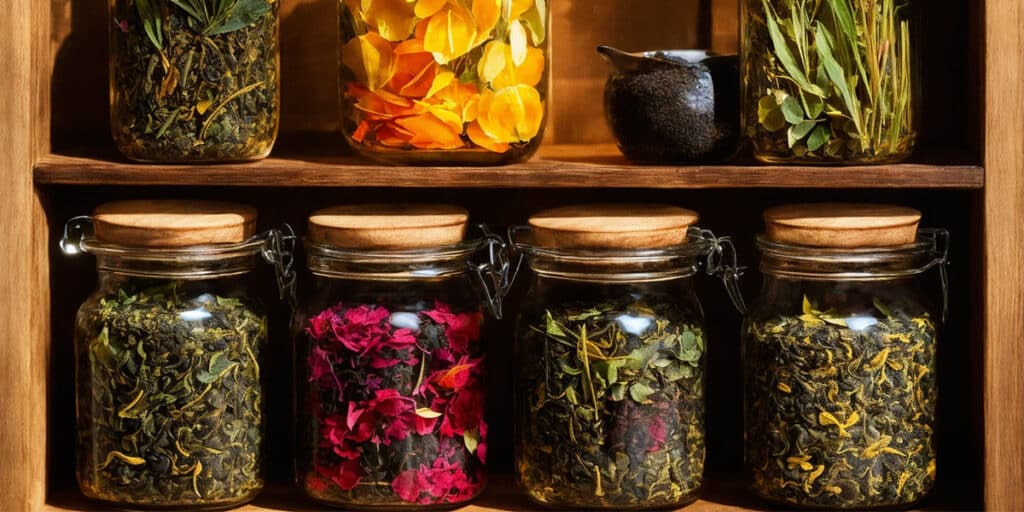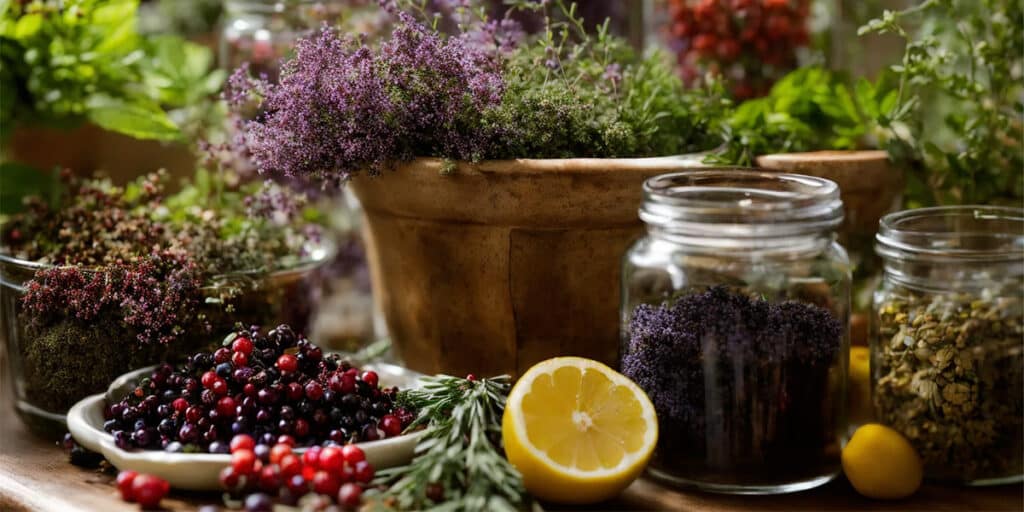Herbal teas, an ancient elixir, have been revered throughout history not just for their aromatic flavors but for their myriad health benefits. In a world increasingly turning towards natural remedies, herbal teas stand out as both a preventative and therapeutic option. They offer a fusion of tradition, taste, and health benefits, making them more than just a beverage choice; they are a lifestyle choice.
This guide delves into the science and soul of herbal teas, exploring how each sip can contribute to your health and wellbeing.
The Healing Power of Herbal Teas
Herbal teas are not just beverages; they are steeped in medicinal properties. Unlike traditional teas, they are made from a variety of dried herbs, spices, flowers, and fruits, each offering its unique health benefits. From aiding digestion to reducing stress, herbal teas have become a cornerstone in natural wellness practices. A study in the “European Journal of Medicinal Plants” highlights their role in treating chronic diseases, showcasing the potential of these botanical infusions.
Herbal teas are a treasure trove of health benefits. Each variety brings its unique properties to the table, offering natural remedies for various health concerns. Here’s a deeper look into these benefits, backed by scientific research:
Digestive Health: Peppermint tea is renowned for its ability to soothe the digestive tract and alleviate symptoms of irritable bowel syndrome (IBS). A study published in the “Journal of Digestive Diseases” found that peppermint oil, which is present in peppermint tea, significantly reduced IBS symptoms.
Stress and Anxiety Relief: Chamomile tea, known for its calming properties, has been used as a natural remedy for stress and anxiety. Research in the “Journal of Clinical Psychopharmacology” suggests that chamomile may have mild sedative effects, making it an excellent choice for stress relief.
Improved Sleep Quality: Lavender tea, with its soothing aroma, has been shown to improve sleep quality. A study in the “Journal of Alternative and Complementary Medicine” found that lavender tea helped alleviate insomnia and depression symptoms.
Boosting Immune System: Echinacea tea is often consumed for its immune-boosting properties. Research in “Phytotherapy Research” indicates that Echinacea increases the body’s resistance to infections and common colds.
Antioxidant Benefits: Green tea, rich in antioxidants, is celebrated for its health-promoting properties. According to the “Journal of the American Medical Association,” long-term consumption of green tea is associated with reduced risk of cardiovascular disease.
Anti-inflammatory Properties: Ginger tea, with its potent anti-inflammatory properties, is beneficial in managing inflammation-related conditions. A study in the “International Journal of Preventive Medicine” shows that ginger can significantly reduce inflammation markers.
| Herbal Tea | Key Study Findings | Health Benefits |
|---|---|---|
| Peppermint Tea | Significant reduction in IBS symptoms (Journal of Digestive Diseases) | Improves digestive health |
| Chamomile Tea | Mild sedative effects, reduces anxiety (Journal of Clinical Psychopharmacology) | Stress relief, anxiety reduction |
| Lavender Tea | Helps alleviate insomnia and depression (Journal of Alternative and Complementary Medicine) | Improves sleep quality, mood enhancement |
| Echinacea Tea | Increases resistance to infections (Phytotherapy Research) | Boosts immune system |
| Green Tea | Associated with reduced cardiovascular disease risk (Journal of the American Medical Association) | Antioxidant benefits, heart health |
| Ginger Tea | Significant reduction in inflammation (International Journal of Preventive Medicine) | Anti-inflammatory, aids in digestion |
Unveiling the Secrets of Herbal Teas
The charm of herbal teas lies in their diversity and the subtle nuances of flavor and health benefits they offer. Each herb has a story, a tradition, and a specific health benefit.
- Peppermint Tea: A digestive aid that soothes the gastrointestinal tract.
- Chamomile Tea: A gentle sedative that helps relieve stress and anxiety.
- Lavender Tea: Known for improving sleep and alleviating insomnia.
- Echinacea Tea: Boosts the immune system and fights off colds.
- Green Tea: Rich in antioxidants, supports heart health.
- Ginger Tea: Powerful anti-inflammatory, aids in digestion.
The Essence of Herbal Teas
At the heart of herbal teas lies their ability to harness the medicinal properties of plants in a form that’s both easy to prepare and enjoyable to consume. Each herb carries its unique profile of flavors, aromas, and therapeutic compounds, offering tailored benefits to the body and mind. From the calming effects of chamomile to the digestive aid of peppermint, herbal teas blend the ancient wisdom of herbal medicine with the simple pleasure of a warm, comforting beverage.
A Closer Look at Popular Herbal Teas
- Chamomile: Known for its calming and sleep-inducing properties, chamomile tea is a go-to remedy for insomnia and anxiety. It’s also used to soothe stomach ailments and support immune health.
- Peppermint: With its refreshing flavor, peppermint tea is not only invigorating but also beneficial for digestion, helping to ease symptoms of bloating and indigestion.
- Ginger: A potent anti-inflammatory and antioxidant, ginger tea is revered for its ability to relieve nausea, improve digestion, and combat cold and flu symptoms.
- Hibiscus: Rich in vitamin C and antioxidants, hibiscus tea is celebrated for its ability to lower blood pressure and support cardiovascular health.
- Rooibos: Originating from South Africa, rooibos is naturally caffeine-free and contains powerful antioxidants that may help protect against heart disease, diabetes, and cancer.
Brewing the Perfect Cup
The key to unlocking the full potential of herbal teas lies in their preparation. While the process is straightforward, slight variations can significantly impact the flavor and efficacy of the brew:
- Water Quality: Start with fresh, cold water, preferably filtered to remove any impurities that might alter the taste of your tea.
- Temperature: Most herbal teas brew best in boiling water (about 212°F or 100°C), which helps to extract the full range of flavors and medicinal compounds. However, delicate herbs like chamomile may benefit from slightly cooler water to prevent bitterness.
- Steeping Time: Herbal teas generally require a longer steeping time than traditional teas, usually between 5 to 10 minutes, to fully release their flavors and active ingredients. Some roots and barks may even benefit from simmering in boiling water for 15-20 minutes to extract their full benefits.
- Dosage: While personal taste preferences vary, a general guideline is to use about one teaspoon of dried herb per cup of water, adjusting according to the desired strength.
Health Benefits and Considerations
Herbal teas offer a myriad of health benefits, including stress relief, improved digestion, anti-inflammatory effects, and enhanced immune function. However, it’s important to approach herbal teas with an awareness of their potency and potential interactions with medications. Pregnant women and individuals with specific health conditions should consult a healthcare provider before incorporating new herbal teas into their regimen.
The Cultural Significance of Herbal Teas
Beyond their health benefits, herbal teas hold profound cultural significance in many societies, serving as a symbol of hospitality, a medium for social connection, and a ritual for relaxation and reflection. The act of preparing and sharing a cup of herbal tea can be a deeply meaningful gesture, embodying care, community, and the timeless human connection to the natural world.
Therapeutic Benefits of Herbal Teas: Your FAQs Answered
How often should I drink herbal teas for health benefits?
Regular consumption, such as 1-2 cups daily, is typically beneficial. However, it’s important to consider individual tolerance and consult with a healthcare professional for specific recommendations
Can herbal teas interact with medications?
Yes, some herbal teas can interact with medications. It’s crucial to consult your healthcare provider before adding new herbal teas to your regimen, especially if you are on medication
Are there any side effects of drinking herbal teas?
Most herbal teas are safe when consumed in moderation. However, excessive consumption or certain herbs can cause side effects such as digestive upset or allergic reactions.
Can I drink herbal teas during pregnancy?
Some herbal teas are safe during pregnancy, but others should be avoided. Consult with a healthcare provider for guidance on which teas are safe to consume.
Do herbal teas contain caffeine?
Most herbal teas are naturally caffeine-free, making them a great choice for those looking to reduce caffeine intake.
Can herbal teas help in weight loss?
Certain herbal teas, like green tea, have been associated with weight loss due to their metabolism-boosting properties.
Is it better to drink herbal teas hot or cold?
Herbal teas can be enjoyed hot or cold based on personal preference. The health benefits remain the same regardless of the temperature.
How long should I steep herbal teas for maximum benefits?
Steeping time can vary, but generally, 5-10 minutes is recommended for most herbal teas to extract their full flavor and benefits.
Can children drink herbal teas?
Yes, children can drink certain herbal teas, but it’s important to choose mild teas and serve them in appropriate amounts.
How can I make my herbal tea more flavorful?
You can enhance the flavor of herbal teas with natural sweeteners like honey or by adding lemon, mint, or ginger.
Citations
- “Herbal Teas and Their Health Benefits: A Scoping Review,” European Journal of Medicinal Plants.
- “Peppermint Oil for the Treatment of Irritable Bowel Syndrome,” Journal of Digestive Diseases.
- “Green Tea Consumption and Mortality Due to Cardiovascular Disease,” Journal of the American Medical Association.
- “Chamomile: A Herbal Medicine of the Past with a Bright Future,” Journal of Clinical Psychopharmacolog.

